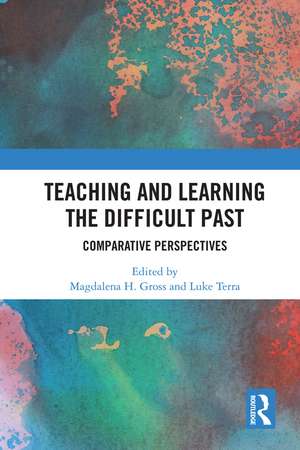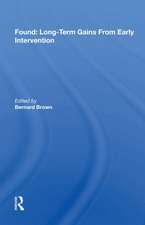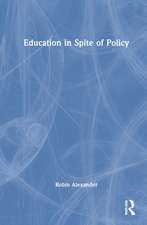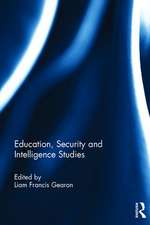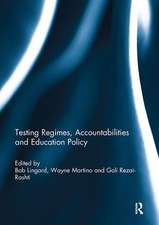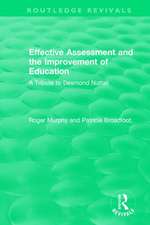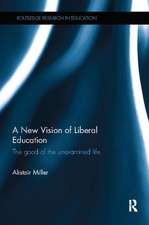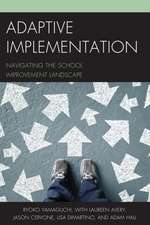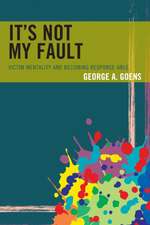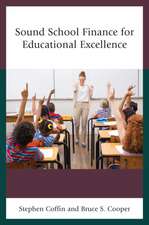Teaching and Learning the Difficult Past: Comparative Perspectives
Editat de Magdalena H. Gross, Luke Terraen Limba Engleză Hardback – 3 dec 2018
| Toate formatele și edițiile | Preț | Express |
|---|---|---|
| Paperback (1) | 376.15 lei 6-8 săpt. | |
| Taylor & Francis – 30 iun 2020 | 376.15 lei 6-8 săpt. | |
| Hardback (1) | 764.20 lei 6-8 săpt. | |
| Taylor & Francis – 3 dec 2018 | 764.20 lei 6-8 săpt. |
Preț: 764.20 lei
Preț vechi: 1027.40 lei
-26% Nou
Puncte Express: 1146
Preț estimativ în valută:
146.23€ • 152.67$ • 121.02£
146.23€ • 152.67$ • 121.02£
Carte tipărită la comandă
Livrare economică 04-18 aprilie
Preluare comenzi: 021 569.72.76
Specificații
ISBN-13: 9781138087187
ISBN-10: 1138087181
Pagini: 316
Ilustrații: 8
Dimensiuni: 152 x 229 mm
Greutate: 0.45 kg
Ediția:1
Editura: Taylor & Francis
Colecția Routledge
Locul publicării:Oxford, United Kingdom
ISBN-10: 1138087181
Pagini: 316
Ilustrații: 8
Dimensiuni: 152 x 229 mm
Greutate: 0.45 kg
Ediția:1
Editura: Taylor & Francis
Colecția Routledge
Locul publicării:Oxford, United Kingdom
Public țintă
PostgraduateCuprins
Foreword
Simone Schweber
Introduction
Magdalena H. Gross and Luke Terra
Part I Theorizing the teaching and learning of difficult histories
Part II Teaching difficult histories
4. An Inquiry-Based Curriculum Design for Difficult History
Bradley Fogo and Joel Breakstone
Afterword
Sam Wineburg
Appendices
Simone Schweber
Introduction
Magdalena H. Gross and Luke Terra
Part I Theorizing the teaching and learning of difficult histories
- Teaching difficult histories: The need for a dynamic research traditionKeith Barton
- Contextual Gatekeeping: Teacher decision-making in multiple and overlapping milieusThomas Misco
- Sublime Understanding: Cultivating the Emotional Past
Part II Teaching difficult histories
4. An Inquiry-Based Curriculum Design for Difficult History
Bradley Fogo and Joel Breakstone
- Ethical Judgments about the Difficult Past: Observations from the Classroom
- When Past and Present Collide: Dilemmas in Teaching the History of the Israeli-Palestinian ConflictSivan Zakai
- Warts, Polyps, Blisters and All? Problems in Learning to Teach a Provocative Past in a Troubling WayBruce VanSledright and Sebastian Burkholdt
- Güeras, Indigenas, y Negros: A Framework for Teaching Mexican American Racial/Ethnic HistoriesMaribel Santiago
- Betrayal, Conversion, and Complicity in the Middle East ClassroomTaymiya R. Zaman
Part III Learning difficult histories - Soft or Hard Biculturalism and Beyond: How New Zealand Adolescents Construct Contemporary Significance of the Nation’s Founding DocumentTerrie Epstein and Michael Harcourt
- History Education, National Identity, and the Road to BrexitEleni Karayianni and Stuart Foster
- "I need to hear a good ending":How students cope with historical violence.Jeremy Jimenez
- The Myth of "Black Confederates": Beliefs of Students and Implications for History EducatorsGabriel A. Reich and Amy Corning
- "We’ve Been Screwed": French Québecers and Their PastJocelyn Létourneau
- Student Motivation to Confront Difficult Local HistoryRob Lucas
- Learning History Through Culture: The Krakow Jewish FestivalAri Y. Kelman
- "Still Racist, Just Less Outward About It:" Secondary Students Narrate Connections Between Slavery and RacismJustine Lee
- Sweetening the Past: Selling Heritage at Knott’s Berry Farm
Afterword
Sam Wineburg
Appendices
Descriere
Building upon the theoretical foundations for the teaching and learning of difficult histories in social studies classrooms, this edited collection offers diverse perspectives on school practices, curriculum development, and experiences of teaching about traumatic events.
Notă biografică
Magdalena H. Gross is a Senior Research Associate at the Center to Support Excellence in Teaching (CSET) at Stanford University, USA.
Luke Terra is Director of Community Engaged Learning and Research at Stanford University, USA.
Luke Terra is Director of Community Engaged Learning and Research at Stanford University, USA.
